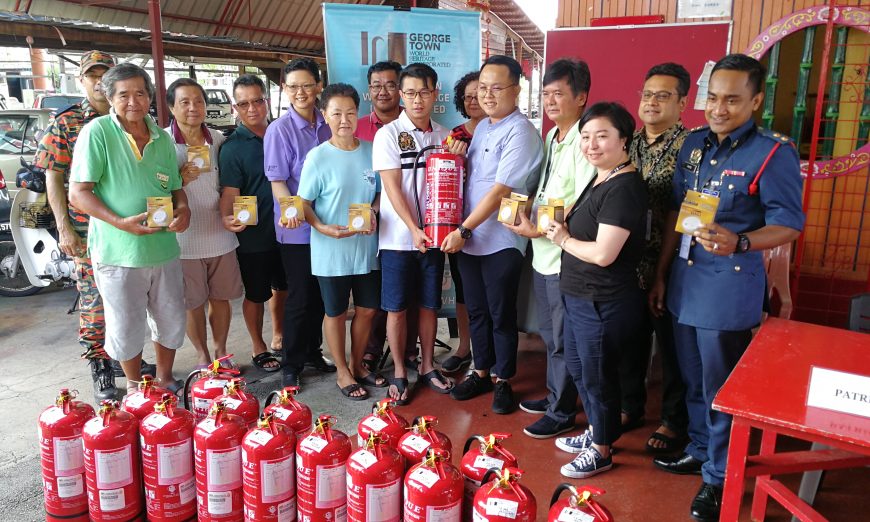ABOUT 40 representatives from the heritage cities of Malaysia, Indonesia, Fiji, Mozambique and Samoa attended a two-day workshop on ‘Disaster Risk Reduction Strategy’ in George Town.
The workshop, which was held at Bayview Hotel on June 20-21, dealt mostly on assessing major hazards, implications to heritage and coping capacity to disasters.
The participants came from the heritage cities of Melaka and Penang (Malaysia), Semarang Old Town (Indonesia), Levuka Port Town (Fiji), Island of Mozambique and Apia Waterfront (Samoa).
Jointly organised by UNESCO Office Jakarta and George Town World Heritage Incorporated (GTWHI) under the framework of the Malaysian Funds-in-Trust, the workshop also included study visits to Cheah Kongsi and Lim Jetty.
Pengkalan Kota assemblyman Daniel Gooi Zi Sen, who was present at the study visit at Lim Jetty today, said he hoped the participants would have gained a better insight and obtained greater knowledge through the sharing sessions and study visits.
“I hope George Town serves as a good example for disaster risk reduction and management because we strive towards inclusivity in our management plans, from government authorities to the local community,” he stressed.
“This workshop, I believe, has enabled heritage cities to learn the best practices of other site managers, their approaches in reducing disaster risks as well as the development of a comprehensive plan by incorporating local communities in the process.”
At the function, Gooi handed over fire extinguishers and smoke detectors to Lim Jetty representatives as part of the Community-based Fire Preparedness and Response Strategy Programme for George Town UNESCO World Heritage Site, which was launched by GTWHI on April 27, 2019.
Also present were GTWHI general manager Dr Ang Meng Chee and head of Cultural Unit from UNESCO Office Jakarta, Moe Chiba.
Ang said the project has enhanced the participants capacity in the identification of cultural attributes, hazards, vulnerability, prevention measures, and the establishment of emergency action plans.
“The project has also helped heritage cities foster ties,” said Ang, who was one of the two resource persons for the workshop. The other was Dr Rohit Jigyasu, programme officer of ICCROM-ATHAR (Architectural-Archaeological Tangible Heritage in the Arab Region).
Story & pix by Danny Ooi

